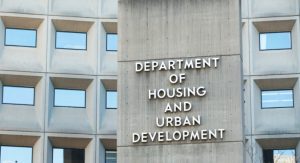 The U.S. Department of Housing and Urban Development (HUD) has made an additional $3,385,353 in American Rescue Plan (ARP) funding available to help HUD’s Fair Housing Initiatives Program (FHIP) agencies combat housing discrimination related to the COVID-19 pandemic.
The U.S. Department of Housing and Urban Development (HUD) has made an additional $3,385,353 in American Rescue Plan (ARP) funding available to help HUD’s Fair Housing Initiatives Program (FHIP) agencies combat housing discrimination related to the COVID-19 pandemic.
According to HUD, this can be discrimination on the perception that someone has COVID or people who have suffered evictions because of loss of income due to no work because of the pandemic.
“HUD is committed to making sure people are not discriminated against when they are searching for housing,” said HUD Secretary Marcia L. Fudge. “This American Rescue Plan funding will ensure COVID-19 status or identity is detached from a person’s ability to rent or keep a home.”
To date, more than $16 million in ARP funding has been awarded to FHIP agencies working to address the unequal impact that COVID-19 has had on communities of color, low-income communities, and other vulnerable populations through projects that encourage a more just, inclusive, and sustainable society.
HUD’s funding is being awarded through FHIP’s Education and Outreach Initiative (EOI). Organizations that qualify for the funding will be able to use the money to develop, implement, and coordinate education and outreach programs designed to inform members of the public of their rights and obligations under the Fair Housing Act.
“Negative impacts from the COVID-19 pandemic continue to be experienced by many communities. HUD’s Fair Housing Initiatives Program partners are uniquely positioned to address the housing discrimination concerns of vulnerable populations,” said Demetria L. McCain, HUD’s Principal Deputy Assistant Secretary for Fair Housing and Equal Opportunity. “President Biden’s American Rescue Plan bolstered fight against housing discrimination by providing the financial resources needed by community partners. The funds being made available will help ensure that our state and local partners have the tools necessary to provide educational resources and restore the lives of people and families who continue to feel the effects of the COVID-19 pandemic.”
Due to actions taken by the Federal Housing Administration (FHA), nearly two million homeowners with FHA mortgages were able to stay in their homes from the beginning of the pandemic in March 2020 through December 2022. Amid the pandemic, FHA borrowers whose ability to make their mortgage payments was impaired by the pandemic were able to obtain either a forbearance, or a more permanent solution such as a loan modification that allowed them to avoid foreclosure.
The EOI grants being made available include:
- ARP National Media Campaign Component (EOI-NMCC): HUD has made $1 million available to provide funds to eligible organizations to create a multi-faceted media campaigns to address housing discrimination issues relating to the pandemic.
- ARP EOI Regional/Local/General (EOI-GC): HUD has made $2,385,353 available for funding to eligible organizations to prevent, mitigate, and respond to the fair housing-related effects of the pandemic through enhanced fair housing education and outreach services and related infrastructure.
Click here for more information on HUD’s assistance programs.

 theMReport.com Your trusted source for mortgage banking news
theMReport.com Your trusted source for mortgage banking news








